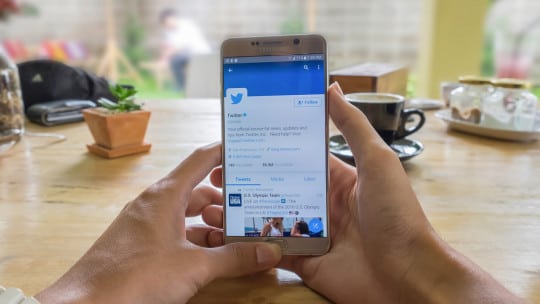

PR & Social Media Manager, PwC
[Editor’s Note: This regular feature asks communicators to spot trends and discuss their reactions to them. In this edition we hear from Larissa von Lockner, PR & social media manager, PwC.]
The Trend: We’ve all been there. You’re scrolling through your social feeds wondering what your friends and family are up to and you just can’t escape the those targeted ads. Those shoes you found last week during your lunch break—the ones you added to your shopping bag but never bought—they’re haunting you!
So, naturally, you ditch that social platform and vow to never buy the shoes out of pure spite. Instagram is supposed to be a sacred space, after all!
All jokes aside, this scenario is not an uncommon one. While many brand advertisers believe that their targeted promotions will lead to a higher sales number or an increased following, the reality is that this world of inescapable promotion proves frustrating to consumers.
How then, you ask, can a brand effectively market itself in an environment where paid campaigns aren’t what they used to be?
The Reaction: Don’t spam your followers. Instead, be selective with your campaigns and invest in developing brand advocates.
That’s right, focus on your most powerful and most valuable asset: your people. Whether you work at a firm that spans the globe and has thousands of employees, or you’re a tiny non-profit working out of a garage with a force of five, this theory holds true: In our modern day, information that comes authentically from the heart of a trusted source is content that will be readily consumed and engaged with.
So, how do you make sure that you’re trusted? How do you establish that voice?
The key is authenticity. Train your people. Even more important, empower them. Establish a strict social media and communications policy, then make sure that your staff receive the training and education that is needed.
Once people understand what they can and can’t say, and you are comfortable having them at the forefront of your brand strategy, they’ll start sharing key messaging in their own voices.
I agree with Carmen Collins who wrote in PR News Pro last week about the payback a brand receives when it empowers employees to act as ambassadors on social media and speak in their own voices (PRNP, Feb. 13). And let me tell you, the voices, videos and photos of your employees always are going to be funnier, more genuine and more relatable than those of a faceless brand.
Just remember: Less is more when you’re running promotions. People turn to social to be social, after all. And when they see other people speaking positively about your product—even if those people are your employees—they’ll respond more positively than if you toot your own horn and spam their favorite channels.
CONTACT: [email protected]
